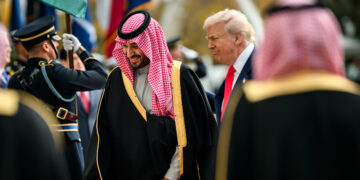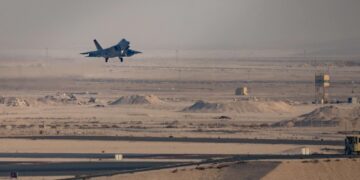June 19, 2025
America cannot afford a forever war in Iran

The Trump administration is seemingly allowing itself to be drawn into Israel’s war with Iran, which could become a prolonged and costly conflict in a region of marginal interest to the United States. G7 leaders, including Trump, released a joint statement this week calling for de-escalation in the Middle East. Yet the U.S. President left the summit early before demanding Iran’s unconditional surrender and publicly raising the prospect of assassinating Ayatollah Khamenei. All this raises uncertainty about what the administration will do next.
Should the U.S. intervene, it is likely that one of the military’s initial targets would be the Fordow nuclear facility, which Israel lacks the capability to destroy without American help. It would then be an open question as to whether Trump decides to limit the offensive to airstrikes against nuclear facilities alone—or involve the U.S. even more deeply in the war.
Despite the legacy of his first administration, which tore up the Joint Comprehensive Plan of Action (JCPOA) nuclear deal and pursued a “maximum pressure” policy against Iran, Trump campaigned in 2024 on avoiding new wars, specifically in the Middle East. During his trip to the Gulf last month, he excoriated previous leaders for pursuing regime change in the region. What’s more, key members of his administration seemed determined to shift focus from the Middle East to the Indo-Pacific and China. Trump’s Special Envoy Steve Witkoff was set to engage in talks with Tehran before Israel’s attack last weekend, while Director of National Intelligence Tulsi Gabbard assessed that Iran was not attempting to build a nuclear weapon.
More on Middle East

November 19, 2025

November 19, 2025

November 18, 2025






